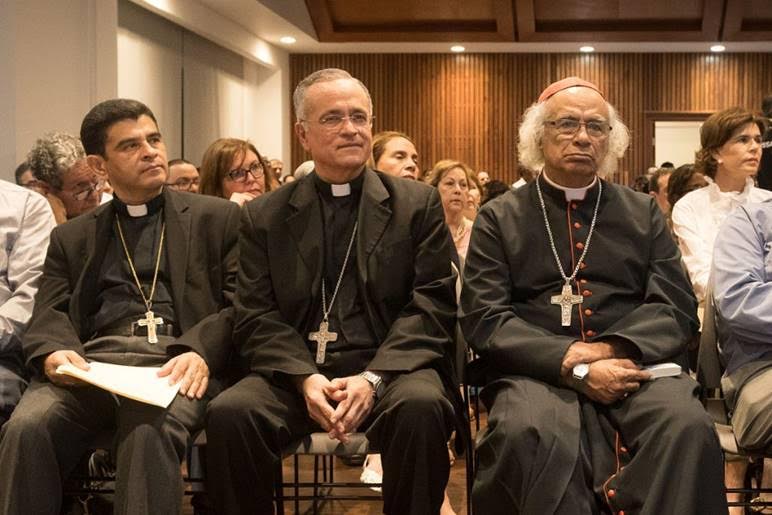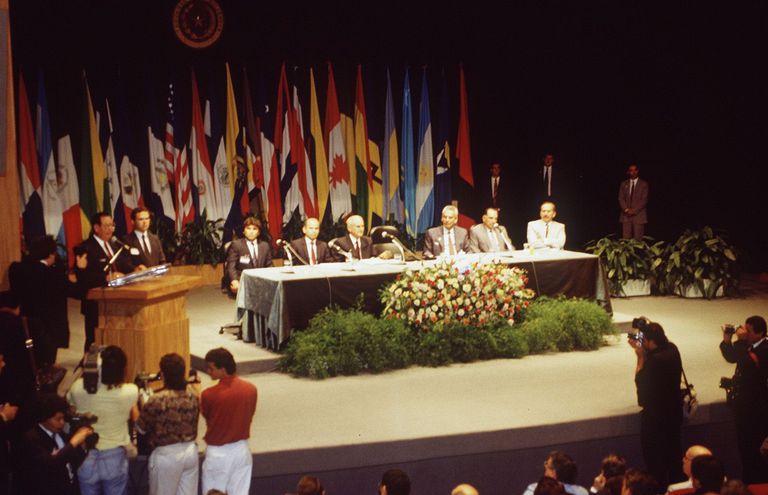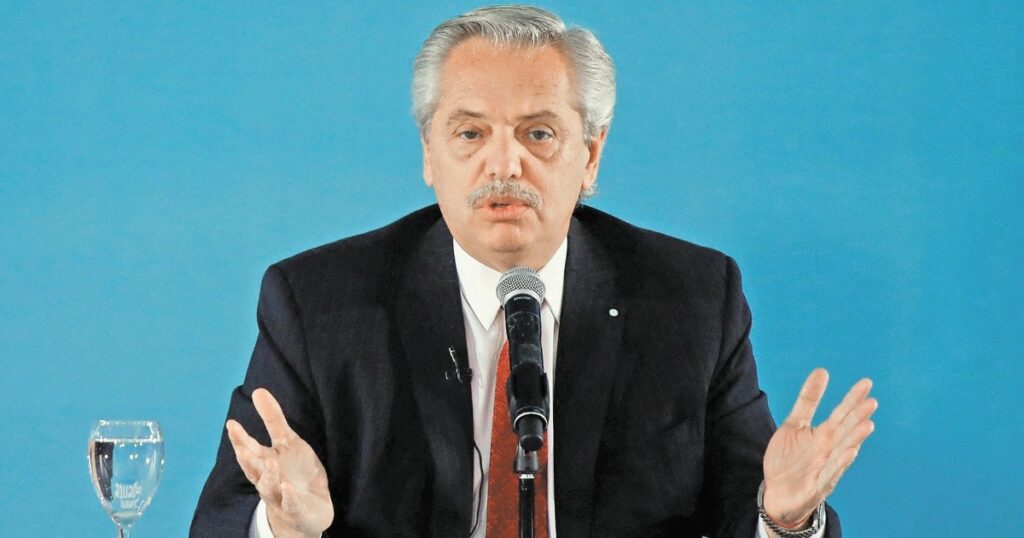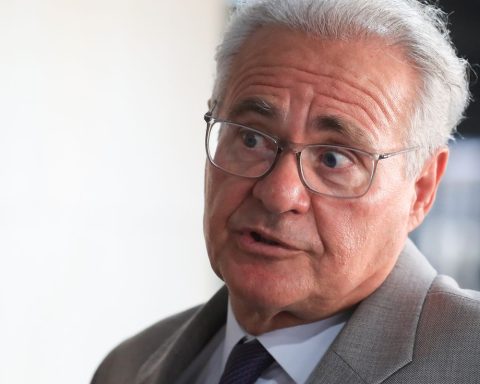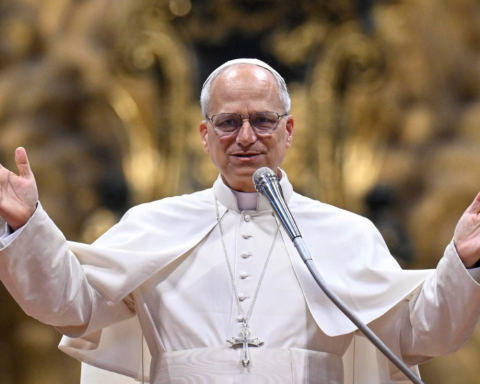In the midst of the repressive escalation of the Ortega regime against the Catholic Church, the auxiliary bishop of Managua, Monsignor Silvio José Báez, recalled in his homily this Sunday, July 3, “that the evangelizing mission of the Church is risky,” and that there are “wolves” who “want the Church to be like a group of silent and blind lambs, insensitive to the conflicts, injustices and pain of the people. This is not how Jesus thought the Church of him,” he expressed.
Bishop Báez’s message, exiled since 2019, occurs four days after Parliament, dominated by the Sandinista Front, canceled the legal status of the order Missionaries of Charity, founded by Mother Teresa of Calcutta, as part of a list of 101 outlawed NGOs. In addition, the regime directed a police device that monitors the Immaculate Heart of Mary Home, one of the works of the nuns in Granada, another chapter of the persecution against the Catholic Church.
On May 20 last, the bishop of Matagalpa, Roland Alvarez, began a fast to demand an end to the police persecution against him, the priest Harvesting Padilla recognized for his part that he had the “parish for prison” and recently the justice system imprisoned the first priest, Father Manuel García de Nandaime, under false accusations of assaulting a woman.
With the Church under persecution, the Carmelite bishop reflected on the mission of this institution, to which Jesus himself has called not to be naive, not to flee from the “wolves” and not to remain silent in the face of their cruelties during the Mass celebrated in the parish Saint Agatha, in Florida, United States.
“We are surrounded by bloodthirsty, ferocious and cruel wolves. However, he does not tell us to flee from them, he does not ask us to remain silent in the face of their cruelty. No. Jesus asks us to walk in their midst, to announce the gospel and denounce their crimes, but always being like lambs in the midst of wolves”, said the prelate.
The regime has intensified its attacks since 2018, when the religious defended the human rights of citizens, brutally repressed by the authorities. The priests and nuns opened the doors of the temples to protect dozens of Nicaraguans who were attacked by police and paramilitary forces. They also raised their voices to denounce the more than 355 murders in that context.
Wolves experts in “violence”
Bishop Báez recalled that Jesus warned his disciples that he was sending them “like lambs in the midst of wolves” and that today’s society “is populated by ferocious wolves, experts in violence and injustice, who tear apart the social fabric with their ambitions and crimes, they make hearts bleed and rob people and peoples of joy and hope”.
He also pointed out that “to denounce the injustice and wickedness of today’s wolves, you don’t have to be wolves like them. There are already many wolves, we don’t need more. To evangelize we need the meekness of lambs”, he expressed.
“There is no need to hate, to be aggressive, to cultivate rancor in the heart, to insult or return evil for evil. We must trust in the force of truth, kindness, and compassion, but without cowering or shutting up,” she exhorted.
“We can be peaceful and good, simple and compassionate, without the need to be fearful and indifferent to evil, because we run the risk of becoming accomplices of the wolves, accomplices of sin, injustice and evil,” he insisted.
Bishops highlight the missionary work of the Catholic Church
While Báez gave his views in exile, in Managua and Matagalpa, Monsignor Rolando Álvarez and Cardinal Leopoldo Brenes separately shared their ideas on the missionary work of the Church.
Álvarez called on the population to trust in God and stressed that the Lord warned that the “work of evangelization has adversities, has difficulties, and also presents storms that hit the boat many times.” However, in the face of these difficulties, “we must be like lambs, trusting in him.”
He highlighted the work of the different religious congregations in Nicaragua such as the Missionaries of Charity, currently persecuted by the dictatorship. “I think of the sisters in Calcutta serving the poorest of the poorest,” she said.
“We cannot stop saying to Nicaraguans let’s look up, because it is Christ who is there. Let us be missionaries of hope in our always beloved Nicaragua”, he pointed out.
For his part, Báez also recalled that the evangelizing mission of the Church faces what he calls the three “d”s: discouragement, weakness and doubt.
“We will not always be with the same enthusiasm, sometimes the temptation to go back will be great and it will even seem to us that all the effort we have made has been useless. Other times weakness will dominate us: we will not always feel strong, the weakness of our inability and our sins will appear or we will be afraid of threats and persecution. In the mission (of the Church) other times the moment of doubt will come: it will seem to us that the effort made has been useless and we can even come to distrust the protection and goodness of the Lord, “said the auxiliary bishop.
Cardinal Leopoldo Brenes, Archbishop of Managua, in a special act in honor of the Blood of Christ in the Managua Cathedral, recalled the attack suffered by the image on July 31, 2019, an act that the Catholic Church described as “terrorist”.
“The image of the Blood of Christ has power… and it is not one of hate, of revenge, but of love, and because it is a power of love, it always remains in our hearts, minds, and nothing, and no one, no matter how much human effort they want. doing it will be able to take it out of our hearts”.
